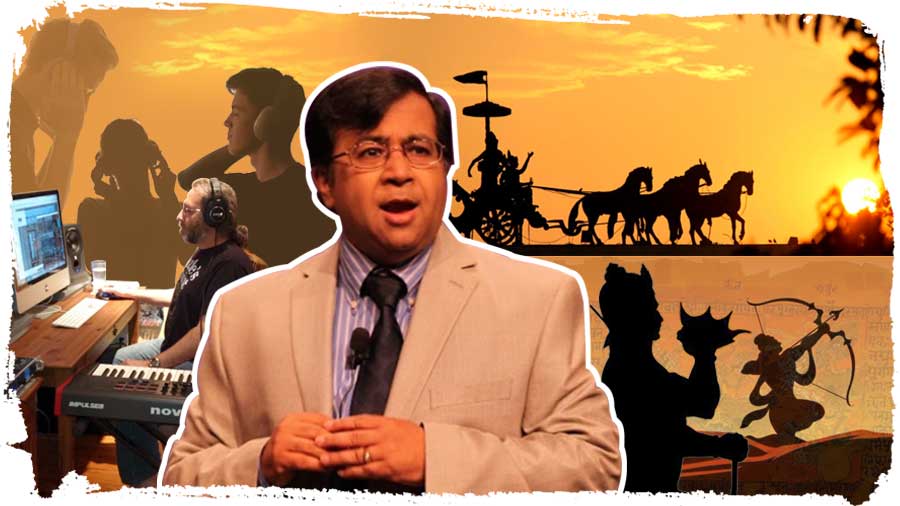Like most Indian kids, Sudipta Bhawmik grew up listening to stories from the Mahabharata. Little did he know then that those stories would become an important part of his life years later with his podcast, The Stories of Mahabharata.
The Kharagpur local, who has been a resident of New Jersey for years now, began working on a series of radio-drama style podcasts in 2014. Combining his training in theatre and colleague Avi Ziv’s musical prowess, Bhaumik has been bringing alive tales from the epic. The Stories of Mahabharata now has 61 episodes and has listeners from all over the globe tuning in.
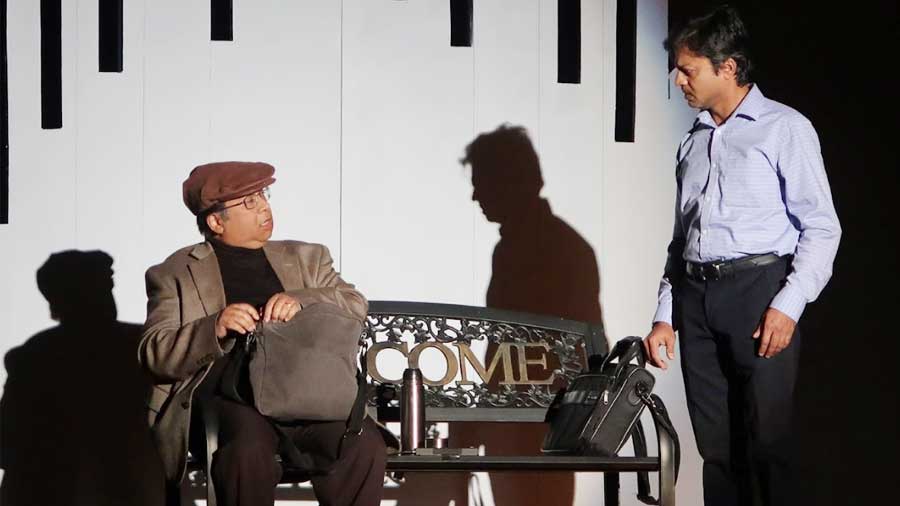
Bhaumik was involved in theatre from a young age and has acted in numerous stage productions Courtesy: Sudipta Bhawmik
An early relationship with theatre
The son of a professor at the Indian Institute of Technology (IIT) Kharagpur, he grew up on the campus and pursued his graduate, post-graduate and doctoral studies in engineering at the institute. Parallelly, he nurtured a keen interest in the performing arts encouraged by his actor mother and trained with stalwarts such as Shambhu Mitra, Tripti Mitra and Badal Sircar.
Even after moving to the US for work, he never let go of theatre. Bhawmik is also an award-winning playwright and has written close to 40 Bengali and English plays. His productions have been staged across the US, the UK, India and Bangladesh and translated into Hindi, Marathi and Tamil. He has even dabbled with cinema, essaying the role of Subroto mesho in Mira Nair’s The Namesake.
Bhawmik’s passion for the stage is particularly evident when he speaks of Kolkata, referring to it as “my city.” “During my yearly Kolkata visits, I usually go to the Academy of Fine Arts or Madhusudan Mancha in the evenings I’m free. I also enjoy meeting my friends from theatre. While others come to Kolkata to eat, I come here to watch plays,” he laughs.
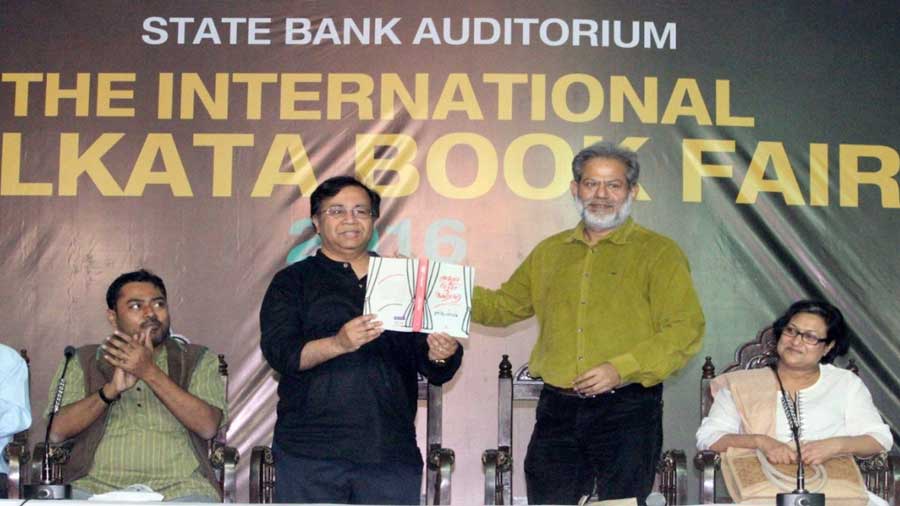
Along with acting, Bhaumik also writes plays and has more than 40 English and Bengali plays to his name Courtesy: Sudipta Bhawmik
Bhaumik’s love for the auditory medium also grew early in life. Due to the lack of stage plays in Kharagpur, he would tune into bi-weekly radio dramas and grew to love them. Much of his theatre training also involved voice acting, adding to the love.
The beginning of an epic idea
The idea of combining his passion for voice acting with the epic that shaped so much of his childhood came about sometime in 2014, when Bhaumik worked for a radio talk show alongside his day job in New Jersey.
“I wrote several productions on Shikhandi, Ekalavya and the discourse between Krishna and Karna. I think the research brought renewed inspiration and I began looking at the epic in novel ways,” says Bhawmik. He got in touch with his colleague and musician-composer Avi Ziv and got him on board for an audio-based retelling.
“I was initially planning a book, but decided to adapt it to a storytelling format on the radio. While I did the writing, voice acting and narration, Ziv looked after sound editing, composition, effects and post-production.”
Born in Israel and raised on stories from the Judaic Bible, Ziv was unfamiliar with the epic. But that worked in their favour because it allowed him to approach the text with objectivity. “I am very interested in mythological stories from different cultures and this was an opportunity to learn more. The work entails Sudipta coming to my house and telling me stories. How can I possibly say no to that?” says Ziv.
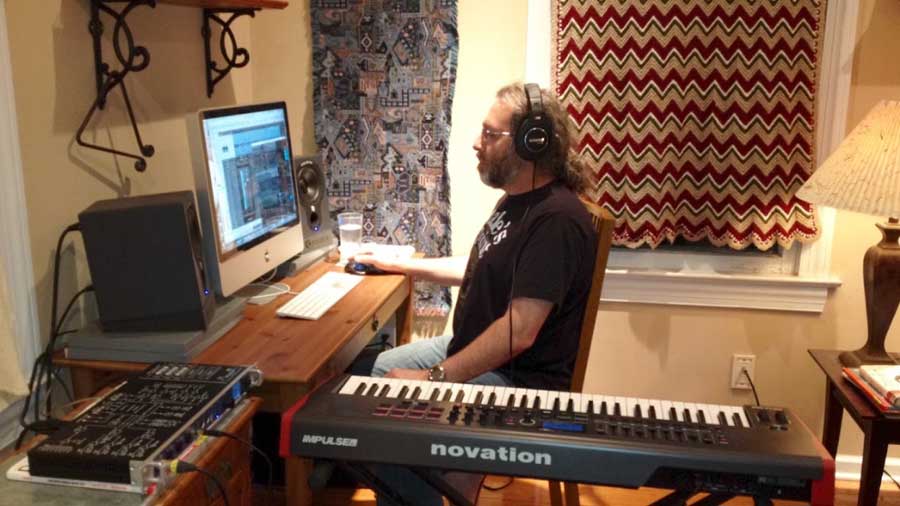
The podcast is recorded and produced from musician composer Avi Ziv’s home studio Courtesy: Sudipta Bhawmik
Adapting to a new medium
Given radio’s strict time frame and demand for regular recordings, it became difficult to juggle the new project with their demanding day jobs, and they bowed out after 10 episodes. In 2016, urged by the desire to keep telling these stories without compromising on quality, the duo turned to podcasts, recorded and produced from Ziv’s home studio.
“At that time, podcasting was gaining popularity in the US and we wanted to target millennial listeners. So we turned the radio show into a podcast, The Stories of Mahabharata. Our goal was to create a dramatic retelling of the epic; we even re-recorded two of the radio episodes because we wanted to give our audience a more professional listening experience,” says Bhawmik.
While happy about the freedom afforded by the format, Bhawmik was clear about not emulating the loud style of TV adaptations. He chose the style of Rajshekhar Basu’s translation of Vyasa’s version, which every Bengali grows up reading. “Basu concentrates on storytelling, and leaves out a lot of the grandiose alankars from the narrative, thus keeping the story moving,” he reasons.
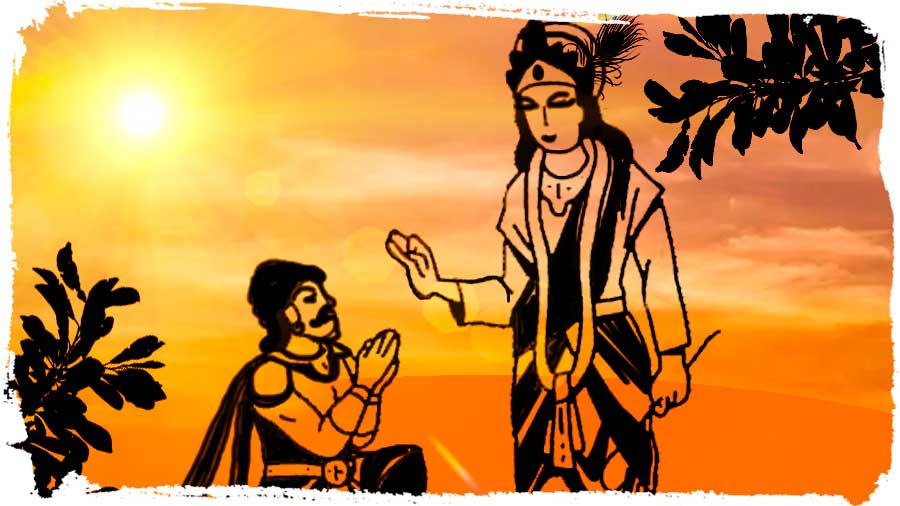
‘The Stories of Mahabharata’ doesn’t censor the story or put characters in a moral shoebox Illustration by Tiyasa Das
Bhawmik’s idea is complemented by Ziv’s music. He decided to treat the project like any other body of work, absorbing the content and responding to it naturally with something that makes sense to him.
“The music I produce is not Indian, but I feel that it is harmonious with the way Sudipta tells the story. I also adopted a minimalistic approach, giving him space to express himself. We didn’t want the podcast to have a typical Indian sound, but a more global one,” adds Ziv.
This amalgamation gives their podcast a unique sound and it has also deterred the duo from opting for external help, in fear of losing its authentic flavour.
Building an immersive experience
In the about 30-minute runtime, Ziv creates a sound that is not overpowering and Bhawmik’s scripts are rich in detail, but without any fluff. In a world where mythology is increasingly marred by religious propaganda and colourisation, it creates a refreshing version of the Mahabharata that doesn’t censor the story or put characters in a moral shoebox.
Incidentally, Bhawmik reveals how mentions of the Pandavas being meat eaters came as a shock to many listeners. “I don’t see the Mahabharata as a religious text. My mission isn’t to inflict listeners with my bias. I just want to tell a human story. In fact, I even think of Krishna as essentially a human being, albeit very sharp and intelligent,” he explains.
He felt this most strongly in the case of the episode based on the Bhagavad Gita that went up in October 2018 and was among the podcast’s most downloaded shows. “It is such an integral part of Indian society. I did not want to give the listeners any gyan and wished to move away from the thousand interpretations of the Gita out there. I just wanted to present the questions that plagued Arjun and the answers that Krishna gave him, and leave listeners to derive their own meaning from it.”
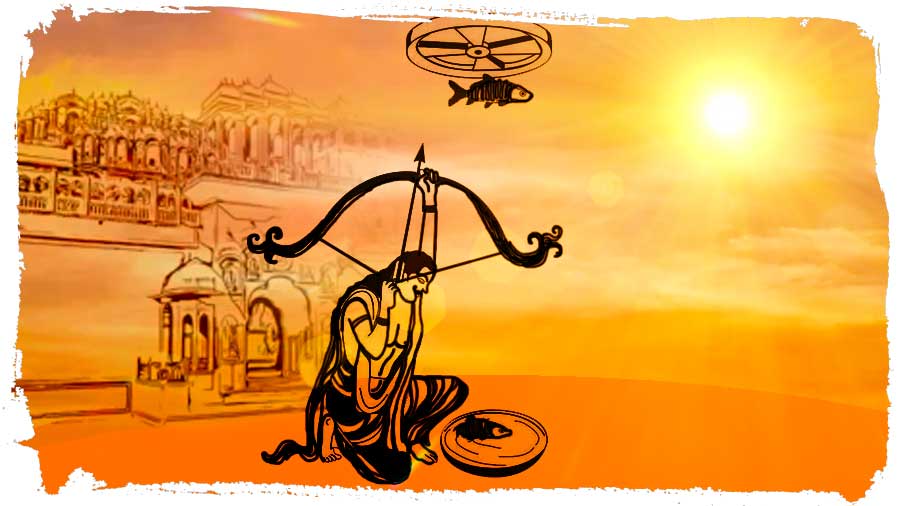
Over the past six years, ‘The Stories of Mahabharata’ has seen 10 million downloads Illustration by Tiyasa Das
Resonating with the people
Bhaumik is much aware of how the text resonates with people. “The flaws of each character are what interest a playwright. Everyone in the Mahabharata is struggling with their own demons and the conflict within is perhaps the real war — the one in Kurukshetra is just a metaphor for it.”
Over the past six years, the podcast has seen 10 million downloads and featured in every app’s top charts, despite sporadic uploads. “At first, we were only on iTunes, but word gradually spread and youngsters cajoled us into joining other platforms like Spotify. Initially, most of our listeners came from the US, Canada and the UK. India got on the bandwagon later [around 2018] but now has the bulk of our listeners, in addition to Australia, New Zealand and even Scandinavian and Southeast Asian countries,” Bhawmik beams.
So far, the only complaint has been about their irregular uploads. Currently, The Stories of Mahabharata has 61 episodes covering events until the 11th day of the war. However, producing a 30-minute episode takes time. As Ziv explains, it takes an hour per minute on average to produce a podcast with their level of sound design.
Both of them juggle other ventures besides their day jobs and can only record “by stealing time from our professional and personal lives,” explains Sudipta. They plan to be more regular and ideally hope to wrap up the story in 15 more episodes.
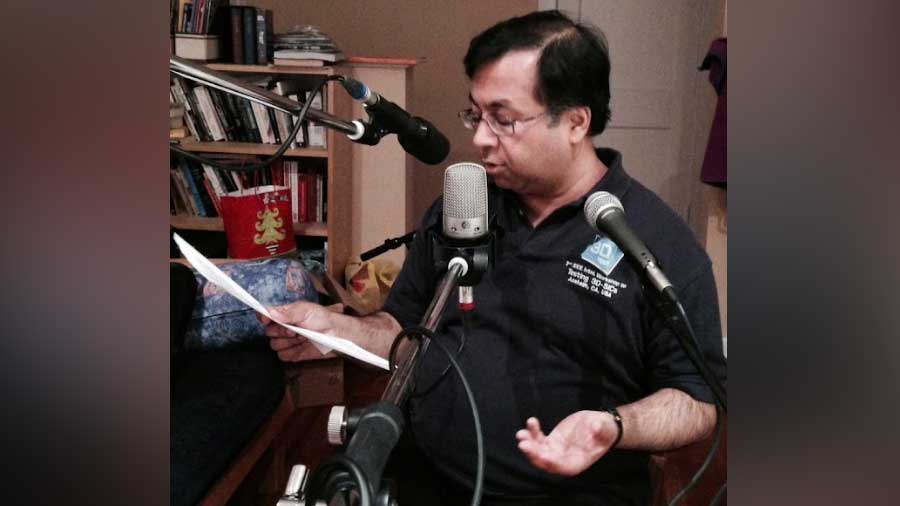
‘I don’t see the Mahabharata as a religious text. My mission isn’t to inflict listeners with my bias. I just want to tell a human story,’ says Bhawmik Courtesy: Sudipta Bhawmik
Building special connections
Given the fact that the podcast does not bring them any financial gain, the commitment is laudable. Bhawmik’s face lights up when he speaks of five-year-olds writing to him, raving about how they can’t sleep before listening to his podcast, or teenagers drawing strength from its humanity before an exam. As a country which has sacredly held on to the Mahabharata’s teachings, the technology boom seems to be bringing a new generation into the fold.
Signing off, Bhawmik encourages listeners to let the text seep into their being and see all the characters within them. “This podcast is a labour of our love, and the glowing feedback keeps us going. We want everyone to find their own meaning from it.”
